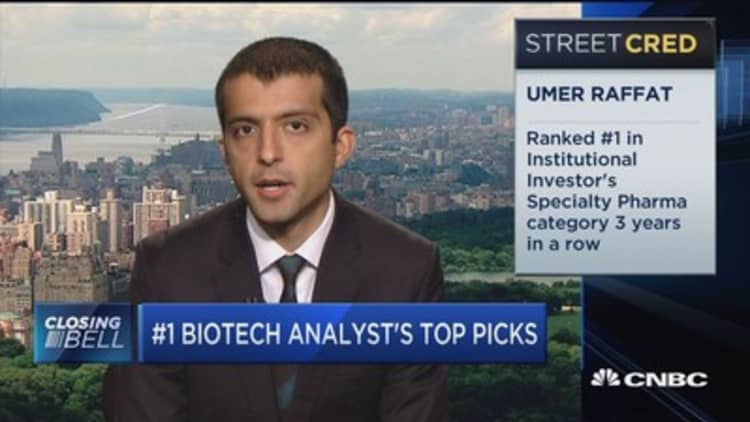A coalition of 10 groups spanning hospitals, health insurers and generic-drug makers sent a letter to Congressional leaders Tuesday asking it to examine Allergan's controversial patent deal with a Native American tribe, adding voices to a growing chorus denouncing the arrangement.
"This issue deserves the prompt attention of Congress, and we encourage you to vigorously apply your oversight authority," wrote the group, which included America's Health Insurance Plans, American Hospital Association and the Association for Accessible Medicines.
The letter was addressed to House Speaker Paul Ryan, Democratic leader Nancy Pelosi, and Senate leaders Mitch McConnell and Chuck Schumer.
The letter came after at least nine congressmen already raised objections to the deal, in which Allergan transferred patents to its $1.4 billion eye drug Restasis to the Saint Regis Mohawk Tribe, whose sovereign immunity could shield it from certain patent challenges from generic-drug makers. The industry groups, in their letter, argued more companies will follow suit if Allergan is successful.
"Allergan's transfer of patent ownership rights to the Saint Regis tribe is a brazen attempt to circumvent U.S. law and engineer a mechanism to maintain monopolistic high drug prices," the group wrote.

It compared the move to another that drew negative publicity to the pharmaceutical industry in years past: tax inversions (something Allergan, in an earlier iteration of the company, did to headquarter the company in a country with a lower corporate tax rate), suggesting "Allergan's scheme may be the first ever 'IP Inversion.'"
The group also sought to tie Allergan in with the industry's most infamous examples of high drug prices: Daraprim, made famous when Martin Shkreli's company Turing raised its price by 5,000 percent, and the EpiPen, sold by Mylan.
"Given the ongoing concern about drug costs, it warrants mention that Restasis generates more in annual revenue than both of those products combined," the group wrote.
Allergan declined to comment on the letter. In an op-ed in the Wall Street Journal Monday, CEO Brent Saunders said the transfer was a way to protect the company's intellectual property "from unfair challenges," saying IPR creates a disadvantage for biopharma innovators and patients.
Analysts and investors originally applauded Allergan for the deal, which was announced Sept. 8, calling it creative. But since then Allergan's stock has declined 7 percent as criticism has mounted.
The company also is defending the same patents against the same generic-drug challengers in federal court, under a process established in the 1984 Hatch-Waxman law. Saunders has also argued that working with the tribe to dismiss the IPR challenges is a way to avoid "double jeopardy" on the same patent battle.
Watch: Allergan trading at a zero pipeline valuation: Evercore's Umer Raffat



